Photographs: Reuters Harsh V Pant
When the prime minister thanked his predecessor during his Independence Day speech, it was significant because it was Dr Singh’s final acknowledgement that political support for reform is essential.
Something remarkable happened last week. Addressing the nation from the ramparts of the Red Fort for the tenth and possibly last time, Prime Minister Manmohan Singh finally underscored the central role that the late P V Narasimha Rao had played in crafting India’s economic policy as prime minister in the early 1990s.
In his speech, Dr Singh said, “In the year 1991, under the leadership of Shri Narasimha Rao, we successfully negotiated a major economic crisis and embraced reforms for strengthening our economy.
These reforms were opposed by many political parties at that time. But the reforms were in national interest and were therefore continued by all governments that came to power subsequently. Since then, the reform process has continually moved forward.”
...
Manmohan Singh's biggest failure in reviving the economy
Image: P V Narasimha Rao (L) and Manmohan Singh (R).Photographs: Reuters
Dr Singh’s subtle tribute to Rao is significant because he was the only non-Nehru-Gandhi prime minister that he mentioned in his speech — and that too after a long time.
This is a time when there is widespread doom and gloom about the state of the Indian economy.
The rupee is plunging, investment is drying up, growth is nowhere to be seen and there are suggestions that India is moving back to the era of controls as exemplified by the RBI’s decision to tighten capital controls on order to defend the exchange rate.
The markets are expecting more restrictions and getting fidgety in the process.
The prime minister has tried to reassure the markets, suggesting that despite recent upheavals, India is not about to face another economic crisis like the one experienced in 1991. But no one is listening anymore.
...
Manmohan Singh's biggest failure in reviving the economy
Image: Prime Minister Manmohan Singh.Photographs: Reuters
The inability of the prime minister to bring even his own party on track on the reform agenda has been perhaps his biggest failure.
But then this is not his fault. And as Dr Singh seems to be suggesting again and again these days, it has always been politics that tends to drive economics.
Managing and nurturing economic reforms is a political process. It’s not a technocrat’s job but that of a political leader. And Dr Singh has never been either an effective politician or a leader.
It is not surprising therefore that, as the myth of Manmohan Singh “the great reformer” breaks down, Dr Singh’s need for a Narasimha Rao-like “friend, philosopher and guide” has been growing.
In his last ten years as prime minister, Singh hardly found time to acknowledge Rao’s contributions to India.
In fact, he hardly reacted when Rao’s body was not even allowed to be taken inside the All India Congress Committee building after his death in 2004 as the Congress Party tried its best to deprive Rao of all the credit that should have been his due as the nation's prime minister at one of the most difficult times in its contemporary history.
...
Manmohan Singh's biggest failure in reviving the economy
Image: Sonia Gandhi with Congress president and then Prime Minister Narasimha Rao at a prayer ceremony in 1995.Photographs: Reuters
The early 1990s was a time when a succession of weak governments had left India rudderless - economically, politically and strategically. The world was changing rapidly and the Indian economy was collapsing.
India was facing a million mutinies and there was no one of national stature to stem the tide.
The Mandal-Mandir discourse - controversies surrounding caste reservations and Ayodhya - was threatening to unravel the country. It was at such a juncture that Rao assumed power.
He had scant support from the senior party leadership of his own party, all of whom had their own aspirations to become prime minister.
Despite the caricature of Rao being indecisive, he was one of the most decisive leaders this nation has seen.
...
Manmohan Singh's biggest failure in reviving the economy
Image: President Pranab Mukherjee with former Presidents Pratibha Patil and APJ Abdul Kalam and Prime Minister Manmohan Singh.Photographs: Courtesy: PIB
On all crucial issues, he took decisions that have continued to shape India’s rise over the last two decades.
Manmohan Singh may be touted as the father of Indian economic reforms, but it was Rao who fathered the process. Dr Singh was an economic technocrat with little understanding of political constraints and hardly any ability to navigate them.
It was Rao who shielded Dr Singh from the left wing of his own party, a flank that had left no stone unturned in opposing the economic liberalisation programme.
Rao made economic reforms politically tenable at a time when his own party was out to scuttle his most ambitious undertaking. He effectively linked economic policy with foreign policy as he reached out to the US, recognising that India would need the support of the West if economic reforms were to succeed.
...
Manmohan Singh's biggest failure in reviving the economy
Image: Prime Minister Manmohan Singh with Sonia Gandhi and Rahul Gandhi.Photographs: Reuters
His imprimatur is everywhere in Indian foreign policy today: Delhi’s subtle balancing act in West Asia; trying to establish a stable balance with China; the outreach to East and Southeast Asia as part of India’s ‘Look East’ policy.
It was therefore distinctly odd the way Manmohan Singh acquiesced in his party’s decimation of Rao’s legacy.
Now, when the Indian economy - Dr Singh’s claim to fame - seems to be unravelling, he is suddenly remembering the role that Rao had played in making the reforms happen.
It was Rao’s sagacious political leadership that sustained the economic reforms programme in the early 1990s. Today, the Congress Party’s leadership has little understanding of what’s at stake.
Neither Sonia Gandhi nor Rahul Gandhi has shown any leadership on the issue. No wonder Dr Singh feels lost, adrift at a time of global and local economic turmoil.
Acknowledging Rao in his last speech from the Red Fort was perhaps Singh’s way of finally paying his tribute to one of the finest prime ministers this country has seen.
The writer teaches at King’s College, London.

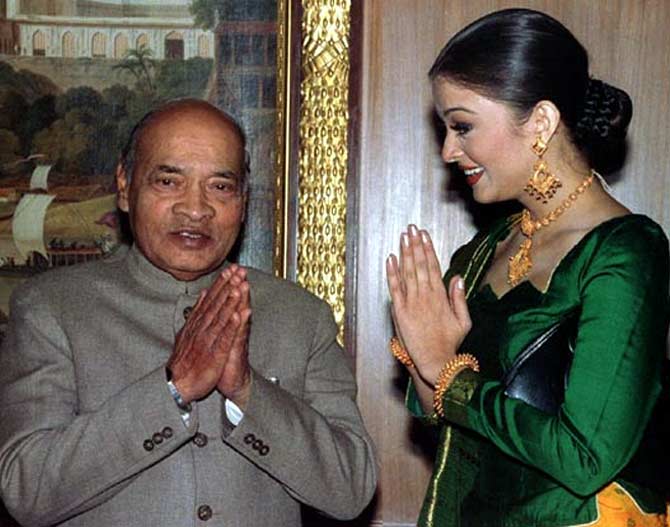
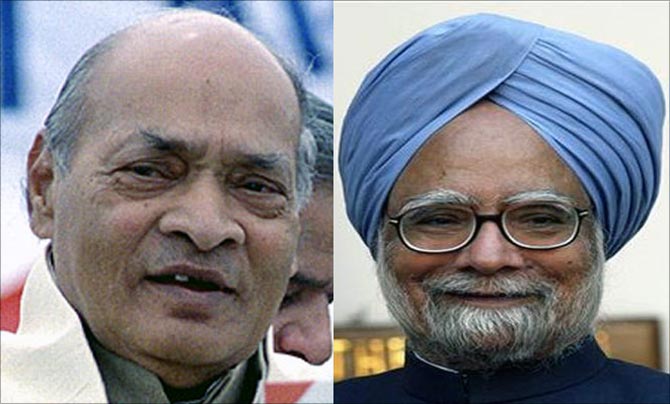
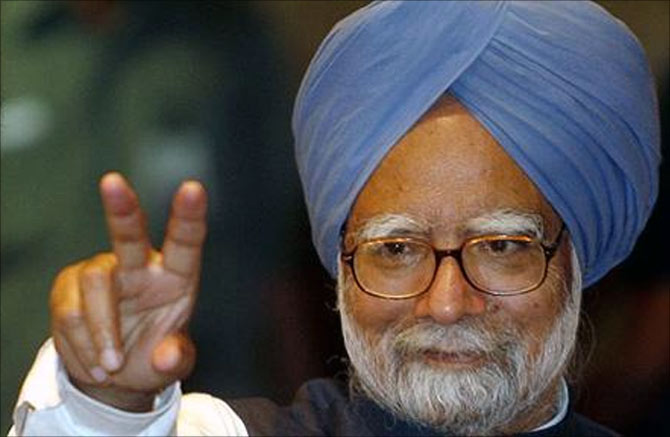
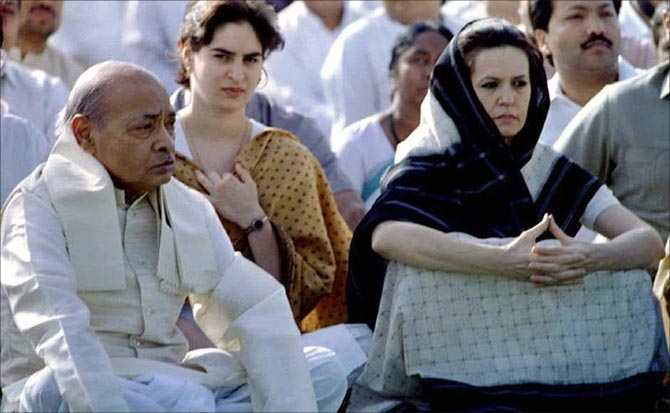
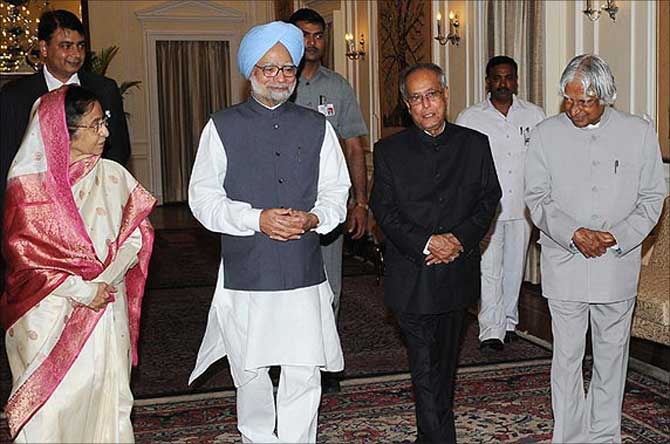


article